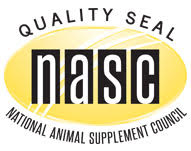Valentine’s Day is coming soon! Chocolate, flowers and beautiful pieces of jewelry can be exciting for gift recipients, but dangerous for pets. If you’re a dog or a cat owner, it’s important to be aware of the common Valentine’s Day dangers. Knowing the ways that your pet can be harmed on or around the upcoming holiday can help you take care of your pet and avoid a medical emergency.
Put Away the Chocolate
Pets tend to like chocolate just as much as people. Unfortunately, chocolate is toxic for dogs and cats. The most dangerous type of chocolate tends to be dark chocolate that contains high levels of cocoa and baker’s chocolate, because it contains concentrated cocoa. When baking chocolate for your loved one, keep your pet out of the kitchen and put away the cocoa when you’re finished. If you’re given chocolate as a gift, eat it right away or keep it in a cabinet that your pet can’t access.
Put Up Toxic and Thorny Flowers
Lilies and daffodils are toxic for pets, as are a variety of other plants. If you’re uncertain about a plant’s toxicity, check with the pet poison hotline or contact your pet’s veterinarian. Don’t forget that thorns are also dangerous for curious pets, who can get infections from puncture wounds. If you’re given thorny flowers, remove the thorns quickly and throw them away.
Watch Out for Sugar Free Candy
Sugar free candy may contain xylitol, a chemical that mimics sweetness and is thus used in sugar-free candies and gums. Xylitol can poison pets, with severe cases resulting in liver failure. Read the ingredients on sugar free candies and foods, and never give your pet anything that contains xylitol. Keep all sugar free candies up and away from your pet.
Keep Curious Pets Away from Shiny Packages
Ribbons, cellophane, wrapping paper and other shiny, attractive decorations can draw attention of pets, particularly young pets like kittens and puppies. When ingested, these attractive objects can cause intestinal blockages and other problems. Clean up gifts immediately after opening them and never leave wrapping paper or decorations laying around where they can be reached by your pet.
Watch for Signs of Poisoning and Injury
Know when to get help. If your pet displays the following symptoms, contact an emergency veterinarian for advice:
- Vomiting
- Diarrhea
- Shakes and chills
- Seizures
- Coma
- Fever
- Lack of coordination
- Weakness
- Difficulty standing
- Labored breathing
- Confusion
The NASC Quality Seal
The goal of the National Animal Supplement Council (NASC) is to promote the health and well-being of companion animals and horses that are given animal health supplements by their owners, and to protect and enhance the integrity of the animal health product industry. When you see the NASC Quality Seal on animal health supplements, you can trust you are buying from a reputable company that has successfully completed an independent quality audit and has complied with rigorous requirements necessary to gain permission to display the Quality Seal. To learn more, and to access meaningful information on all aspects of health and wellness for dogs, cats and horses, visit AnimalHealthLive.com.


